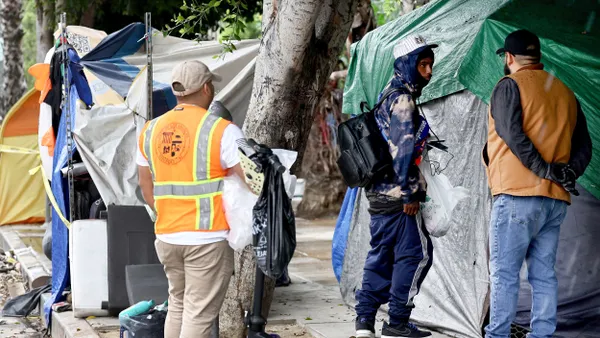Dive Brief:
- The City of Boston has published responses to a request for information (RFI) issued in February regarding ways to develop and manage a municipal electricity aggregation program. The program, also known as community choice aggregation (CCA), would allow the city to select the energy supply for its communities and potentially add more renewable energy content in that supply than what is required by the state of Massachusetts.
- The responses — derived from energy experts, environmental nonprofits and community groups — highlighted recommendations for the procurement of consulting services, the procurement of electricity supply and approaches to community outreach.
- The city says it did not get any responses that indicate the estimated cost savings of a CCA program, but noted Carbon Free Boston will continue to study the costs and benefits in order to justify the program.
Dive Insight:
Boston Mayor Marty Walsh has long championed his mission to make Boston a "greener" city, and has worked to implement this mission through the city's Climate Action Plan — a roadmap to reduce greenhouse gas emissions 25% by 2020 — and the Greenovate Boston initiative. Through this initiative, the city has focused on improving or achieving resiliency strategies, zero waste, green space, sustainable mobility, engaged communities and smart energy.
If implemented, this CCA program would be an added bonus to the already-significant steps Boston has taken toward smart energy practices. The city currently backs a number of programs including the Carbon Cup, Renew Boston Trust, Senior Saves and the E+ Green Building Program, and just recently launched its Carbon Free Boston initiative in November 2017. And all of these efforts are especially welcome in Massachusetts, which has topped the charts as the most energy-efficient U.S. state for seven years running.
Perhaps the success Boston is finding in developing and implementing such smart energy programs is its transparency with city residents and businesses. This recently-published summary of RFI responses (as well as the detailed responses) walks the public through the exact steps the city is taking in deciding on the CCA program, as well as the questions and concerns the city has in moving forward. By making this information public, easily accessible and simple to understand, the city is looking to increase community buy-in and therefore get a head start on a successful program implementation.












